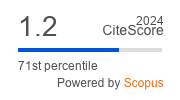Стратегії архаїзації та модернізації у перекладі художніх текстів XVI–XVII століть
DOI:
https://doi.org/10.29038/eejpl.2016.3.2.andКлючові слова:
стратегія перекладу, архаїзація, модернізація, нейтралізація часової дистанції, хронотоп, художній переклад.Анотація
У статті проаналізовано стратегії відтворення часової дистанції в перекладі класичних текстів шекспірівських часів. Стратегії архаїзації, модернізації і нейтралізації часової дистанції досліджено на мовно-стилістичному, когнітивному і прагматичному рівнях. Стратегія архаїзації полягає у створенні образу минулої епохи через уживання архаїчних лексем і граматичних форм, буквальне відтворення когнітивних сценаріїв і прагматичних формул. Модернізація полягає у створенні образу сучасності як частини хронотопу інтегративно-текстового мегаконцепту перекладу, завдяки підбору сучасних відповідників, іноді з розмовними або вульгарними стильовими характеристиками, заміни архаїчних когнітивних сценаріїв та прагматичних формул на сучасні. Стратегія нейтралізації часової дистанції означає усунення часової маркованості художнього образу твору.
Література
References
- Baryshnikov, P. (2010). Metaphorical cognition and actualization of archaic concepts in the
daily discourse. Journal of International Scientific Publication: Language, Individual &
Society, 4(1), 152–159 - Bassnett, S. (2002). Translation Studies, 3rd ed. New York and London: Routledge,
2002. - Eco, U. (2000). Experiences in Translation. (A. McEwen, Trans.). University of Toronto
Press. - Hoyle R. A. (2008). Scenarios, Discourse, and Translation: The Scenario Theory of Cognitive
Linguistics, Its Relevance for Analysing New Testament Greek and Modern Parkari Texts, and
Its Implications for Translation Theory. Dallas: SIL International. - Izard, C. E. (1991). The Psychology of Emotions. New York: Plenum Press.
- Jakobson R. (2000). On linguistic aspects of translation (1959) In: The Translation
Studies Reader. (pp. 114-118)., L. Venuti, M. Baker, (Eds.). Routledge London and New
York. - Jones, F. R., & Turner, A. (2004). Archaisation, Modernisation and Reference in the
Translation of Older Texts. Across Languages and Cultures, 5(2), 159–185. - Kharmandar, M. A. (2014). Exploring archaism in translation theory and modern Persian
poetics: towards a Persian translation paradigm. Iranian Journal of Translation Studies, 12(46),
40–56. - Lefere, R. (1994). La traduction archaïsante: cervantes d’Après M. Molho. Meta, 39(1), 241–
249. - Malkki, A. (2009). Translating Emotions Across Time: Lewis Carroll’s Alice’s Adventures in
Wonderland. The Electronic Journal of the Department of English at the University of
Helsinki, 5. Retrieved from: http://blogs.helsinki.fi/hes-eng/volumes/volume-5/ translatingemotions-across-time-lewis-carroll’s-alice’s-adventures-in-wonderland-aila-malkki/ - MacDonald, P. S. Palaeo-Philosophy: Complex and Concept in Archaic Patterns of Thought /
MacDonald, Paul S. In Cosmos and History: The Journal of Natural and Social Philosophy.
Retrieved from: https://www.questia.com/read/1G1-170414880/palaeo-philosophy-complexand-concept-in-archaic - McElhanon, K. A. (2005). From word to scenario: the influence of linguistic theories upon
models of translation. Journal of Translation, 1(3). 29–67. - Steiner, G. (1998). After Babel: Aspects of language and translation, 3rd ed. London and
Oxford: Oxford University Press. - Schleiermacher F. (1992). On the different methods of translating In: Translation.
History. Culture: A Sourcebook (pp. 141–166). tr. and ed. A. Lefevere. London, New
York: Routledge. - Venuti, L. (1995). The Translator’s Invisibility: A History of Translation. London and New
York: Routledge.











 Creative Commons «Attribution» 4.0
Creative Commons «Attribution» 4.0